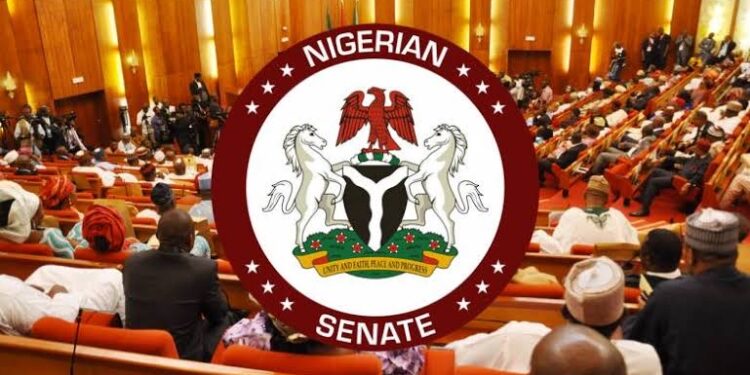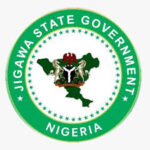The Nigerian Senate’s recent effort to repeal the National Identity Management Commission (NIMC) Act No. 23 has raised some controversies, questions, and concerns, and must therefore be handled with tact and full transparency.
The Senate on July 2, 2024, passed for a second reading the bill officially titled “The National Identity Management Commission (Repeal and enactment) Bill 2024 (SB 472)” sponsored by the Deputy Senate President, Barau Jibrin.
The bill is apparently geared towards increasing inclusivity in the identity management system, fortifying the foundational framework of NIMC’s operations, and expanding the scope of registrable persons. It also aims to streamline data sharing between relevant agencies.
By expanding the scope of registrable persons, the bill in Part VI (17) proclaims that, “Every citizen and resident of the Federal Republic of Nigeria shall be entitled to obtain a National Identification Number (NIN) by undergoing the process of enrolment in accordance with the provisions of this act.”
- Nigerian music icon, Onyeka Onwenu, dies after performance
- Adamawa govt denies receiving federal food aid, urges caution on protests
The registration of resident non-Nigerians is one of the clauses in the bill that has caused agitations among some Nigerians, and raised concerns over the acquisition of NIN by non-Nigerians, some of whom may be criminals operating in the country.
While these concerns may appear naive in some quarters, they are not without cogent roots considering how porous Nigeria’s borders have become with criminal gangs enjoying a free pass across the borders. The fears that these criminals, some of them reportedly foreign, may obtain NINs, therefore, are an understandable concern, especially considering how badly Nigeria has mismanaged the national identity project, from the chaos that accompanied the NIN ultimatum at the height of the COVID-19 pandemic to the inexplicable duration it takes for Nigerians to obtain national identity cards.
Regardless, these concerns, however, are a result of a lack of awareness of global best practices regarding identity numbers. The Senate and NIMC should have taken greater care in creating awareness about the bill and its implications for Nigerians, by assuring the public that issuing identity numbers to resident aliens is generally in compliance with global best practices.
National identity numbers, regardless of the name they are given, are used by governments of many countries to track their citizens, permanent and temporary residents for various purposes such as work, taxation, government benefits, healthcare, and other social services. In several countries, being a citizen is not a requirement to obtain one. In fact, certain countries mandate that everyone must have one in order to function.
For instance, being a US citizen is not necessary to have a Social Security Number. Any resident of the US with valid documentation needs a Social Security Number to participate in the US system. Without it, they cannot open bank accounts, obtain credit cards, get a driver’s licence, or access other social services.
Therefore, these numbers make it easier to track individuals’ activities within a country and ensure accountable security for all citizens.
Instead of focusing on the controversy surrounding the bill, we should commend the efforts to streamline the operations of the NIMC with some reservations. We must first emphasise the need to fully streamline the system. Currently, Nigerians are required to have a Bank Verification Number (BVN), a NIN, and a Voter’s Number, while one number, with proper data management, would suffice.
NIMC has long been promoting its intention to harmonise its citizens’ database, but it seems that this effort is still far from being accomplished. This bill should therefore establish the necessary legislation to make this a reality. In addition to the passage of the bill by the Senate, relevant government agencies must ensure that informed interested parties, civil society groups, and cybersecurity experts are allowed to scrutinise the documents, question its merits and demerits, and share their expert opinions on the bill in order to create a document that will help the country progress and establish a better functioning system.
The bill will also provide for the establishment of the National Identity Database, which will be maintained by NIMC. This will not only secure the country’s database under one administration, but will also be useful for relevant agencies to access vital data, and therefore better track activities within the country in terms of fiscal, security, and social matters.
Therefore, the bill must include ironclad measures to secure this database, ensure only trusted parties have access to it, and that personal data collected are not compromised. They must also clearly spell out the consequences for any abuse or misuse of the data so collected and provide insurance and guarantee for citizens who may be compromised in case of any breach.
This is a very sensitive and high-risk and high-reward venture and must therefore be handled by the executive, the Senate, NIMC, and other interested parties with the utmost care and concern, as our national security and the personal security of Nigerians and residents, are at stake.

 Join Daily Trust WhatsApp Community For Quick Access To News and Happenings Around You.
Join Daily Trust WhatsApp Community For Quick Access To News and Happenings Around You.


